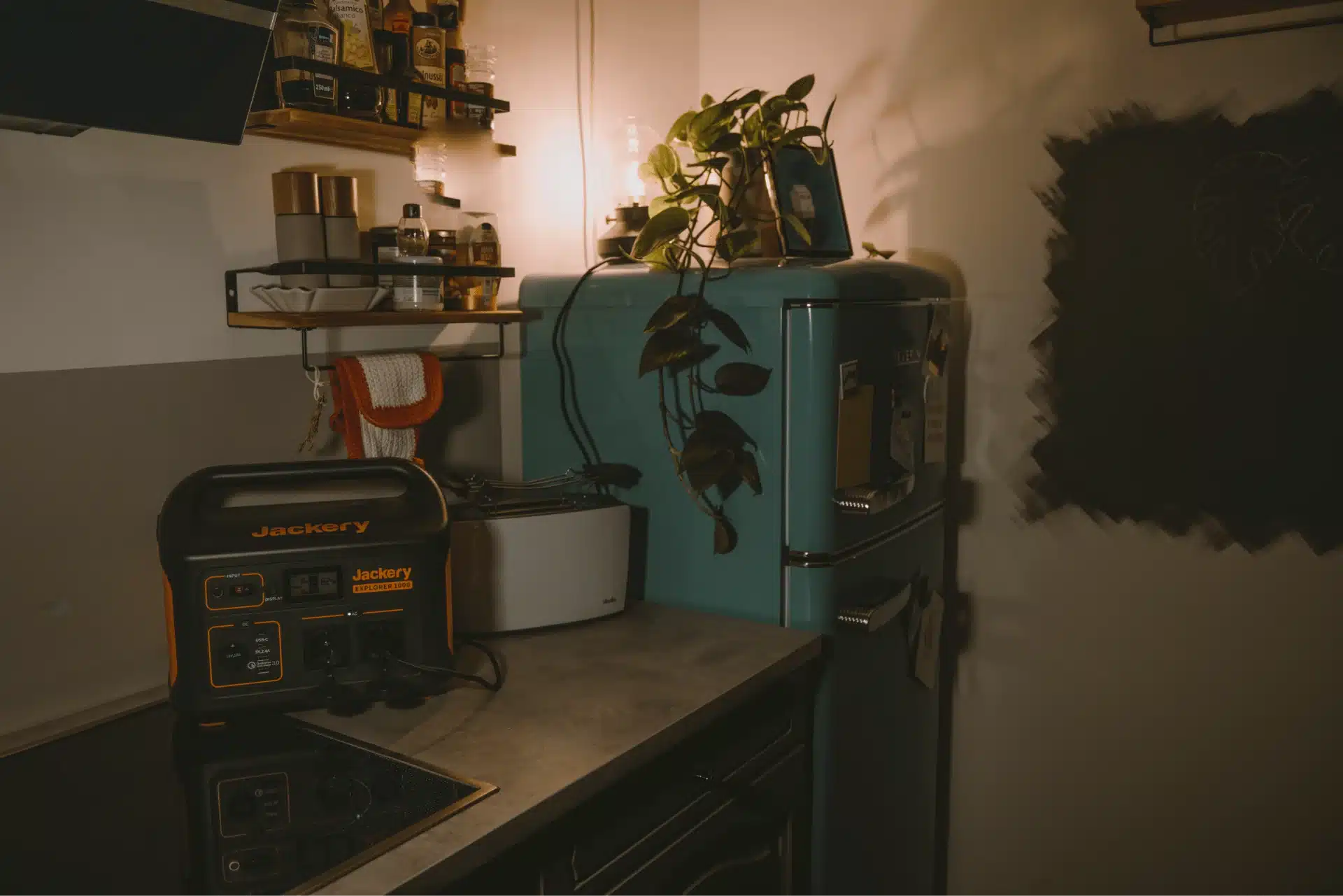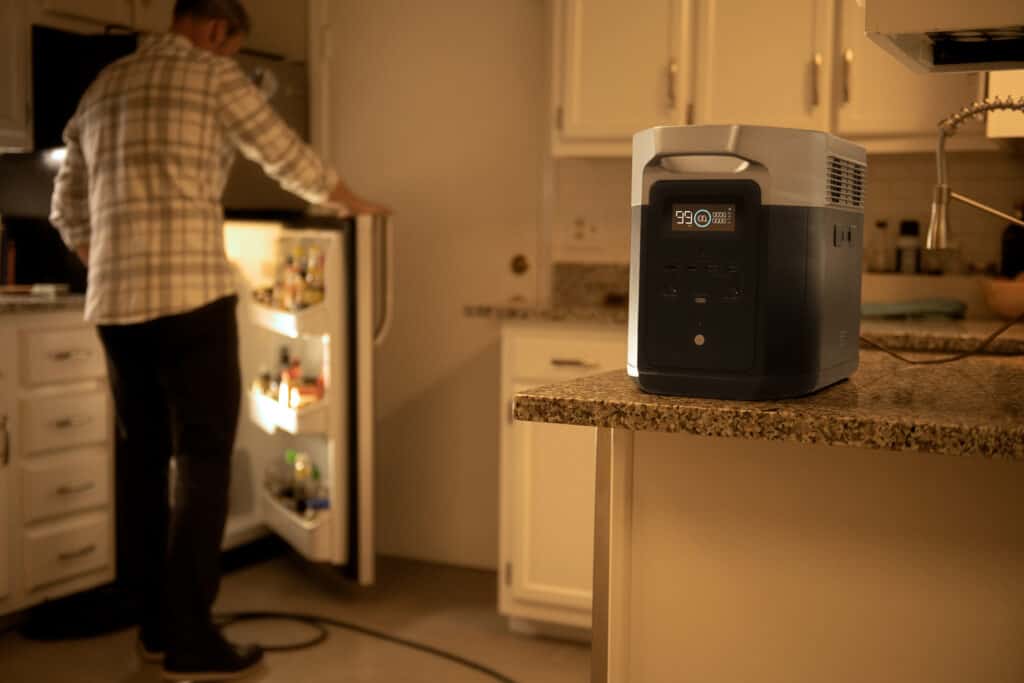Understanding Portable Power Stations
When discussing portable power options, I can’t ignore the rising popularity of portable power stations. Imagine having a mini power plant right at your fingertips, providing you with reliable energy wherever you go. That’s what a portable power station essentially is.
Portable power stations, also called solar generators, aren’t your usual ‘generators’. They don’t run on gasoline or propane. Instead, these modern marvels use a large battery to store electrical energy. I find it fascinating that some can even be recharged using solar panels, making them a sustainable option for generating power.
Some of the benefits of portable power stations include:
- Silent Operation: Unlike traditional generators, they don’t produce noise pollution.
- No Harmful Emissions: As they’re battery-powered, you won’t have to worry about harmful fumes.
- Versatility: They can easily power a wide range of devices like smartphones, laptops, and small appliances.
Not all portable power stations are created equal, though. Their power capacities and the devices they can charge can vary considerably. Here’s a simple table to shed more light:
| Power Capacity | Devices It Can Charge |
|---|---|
| Under 100W | Smartphones, Tablets |
| 100-300W | Laptops, Lamps, Fans |
| 300-1000W | Televisions, Mini Fridge |
| Over 1000W | Power Tools, Large Appliances |
The choice between a portable power station and a traditional generator often boils down to your individual needs. If you’re all about convenience, flexibility and green energy, portable power stations may very well be the right choice for you. Stay tuned for the next section where I’ll dive deeper into the workings of traditional generators. You’ll be well-equipped to make an informed decision by the end of this article.
Getting to Know Generators
Delving into the realm of generators, there’s a lot to unpack. The roots of power generation run deep – they’ve been a mainstay of off-grid power solutions for quite some time. They’re flexible, capable, and offer a range of options that can adapt to a host of scenarios and requirements.
Traditional generators come equipped with one primary component – an internal combustion engine. This powerhouse makes use of fuel—like gasoline, propane, or diesel—to generate electricity. Its mechanics aren’t too complex: fuel goes in, and power comes out. But, it’s important not to be fooled by its simplicity.
Instead, appreciate the value that comes with understanding a generator’s duty cycle. That’s the time it can operate before requiring a cool-down period. A typical generator can run for about 8-10 hours at 50% load, after which it’ll need a little R&R. These are rough averages of course and can vary based on the unit’s make and model.
| Typical Generator | Duty Cycle | Load |
|---|---|---|
| Gasoline | 8-10 hours | 50% |
Before you jump on the generator bandwagon though, it’s worth noting some aspects that might give you pause. Generating power using fossil fuels means dealing with the related emissions. Environmental considerations take center stage in this regard, given the increasing focus on renewable energy and green technology.
Likewise, let’s not forget about the ongoing costs. Fuel isn’t free, and if you find yourself using a generator regularly, those costs can quickly add up. Also, bear in mind the inevitable noise. Generators aren’t known for being the quietest of devices.
- Environmental impacts
- Fuel costs
- Noise levels
So, get familiar with the needs of your power consumption. Understand the potential and the drawbacks. I guess the takeaway here is to approach generators with your eyes wide open. They’re a solid solution, they’ve stood the test of time for a reason, but that doesn’t mean they’re without challenges. Each choice brings with it a balance of give-and-take – you’ve just got to decide where your priorities lie.
Portable Power Stations Vs. Generators: Making the Right Choice
Let’s dive right into the debate of Portable Power Stations vs Generators. First and foremost, knowing your power needs is crucial. Do you frequently embark on outdoor adventures where charging multiple small devices is a necessity? Or are you after a dependable powerhouse to back you up during a blackout? Your specific needs will tip the balance towards one or the other.
You see, portable power stations are perfect for recharging small gadgets like phones, tablets, laptops, and drones. They’re compact, lightweight, and extremely quiet – superb fit for camping, picnics, and other outdoor activities. A great plus is their ability to store energy, so you can charge them up at home before a trip and have power wherever you go, off-the-grid.
On the other hand, generators are more robust and deliver a larger power output. They can run heavy-duty appliances for hours on end without flinching. So if your power needs involve home backup during power outages, or running construction equipment in remote locations, you’d be better off with a generator.
One important aspect to mention though, generators use fuels such as gasoline or propane to run, which may not always be easily accessible or environmental-friendly. You’ll also have to consider the noise factor. Generators aren’t exactly known for being library-quiet.
To wrap things up, both power stations and generators have their own set of perks and downsides. For lower power needs and quieter operation, go with a portable power station. For substantial power needs where sound isn’t a big issue, a generator will serve you well. It ultimately boils down to what your requirements are. It’s a classic case of the right tool for the right job!





